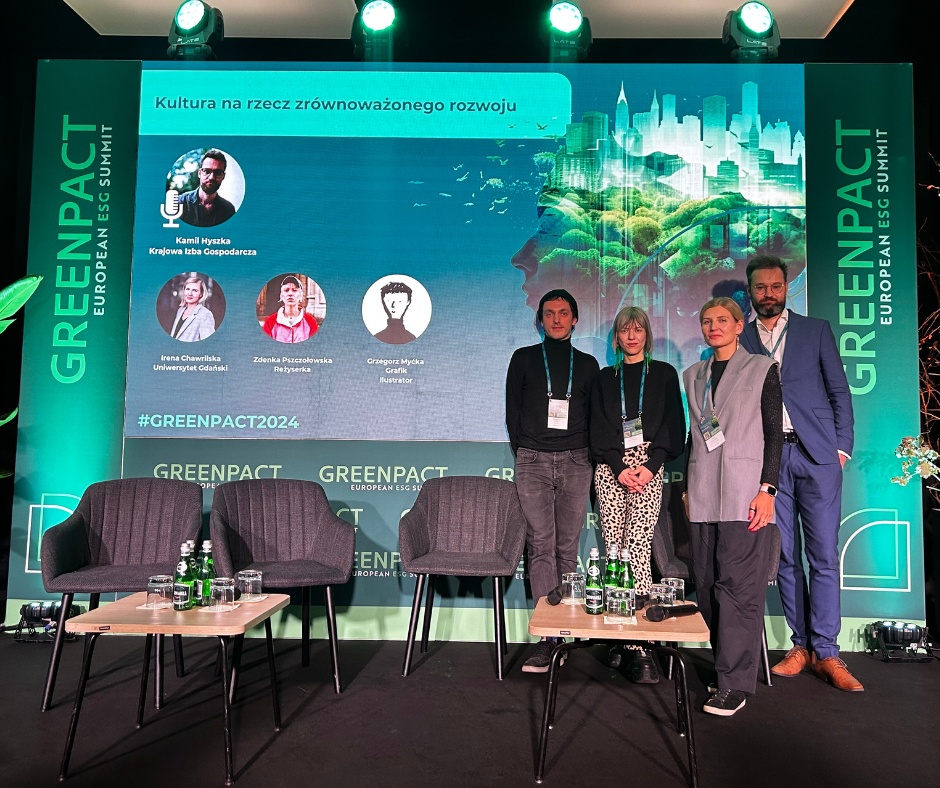How to generate positive environmental and social impact? – this was debated by the participants of the GREENPACT European ESG Summit Congress, which took place on 29-30 October 2024 at the Poznań Congress Center on the grounds of the Poznań International Fair. The panel ‘Culture for Sustainable Development’ featured Irena Chawrilska, PhD, coordinator of the More-than-Human Studies Lab programme at the UG Centre for Sustainable Development.
The Greenpact European Summit, organised by the National Chamber of Commerce and the MTP Group, is an event that encourages reflection on green transformation by representatives of business, activists, scientists, public administration and international agencies.
Between numerous discussions on green finance, ESG reporting, migration challenges, fintech, space resources, NGOs, the topic of culture and sustainable development also gained its space during the congress. The discussion on this topic was moderated by Kamil Hyszka from the National Chamber of Commerce, and featured Zdenka Pszczołowska, director; Grzegorz Myćka, illustrator and graphic designer; and Irena Chawrilska, PhD, representing the Centre for Sustainable Development at the UG.
“It may seem that the languages of business and art are not compatible, for while the former talks about sustainability, the latter offers tools for criticism and reflection, new ways of talking about the world from postcolonialism to posthumanism,” comments the coordinator of the More-than-Human Studies Lab CZRUG. “Language issues also came to the fore during the discussion and attempts to show the differences and similarities between the idea of sustainable development and the concept of sustainability, for which it is not easy to find an equivalent in Polish.”
As the researcher reports, the conversation then turned to the recent Nobel Prize for Literature for South Korean writer Han Kang and the implications of the Swedish Academy’s choice.
“Opening up, including institutionalised, art spaces for caring and tenderness, literature that intimately and poetically narrates empathetic relationships, can be a direction pointing towards a vision of a better future for our communities,” points out Irena Chawrilska. “We already know that the world is disgusting and the category of the Anthropocene reminds us of this on a daily basis. Art, despite building its story on challenges, problems, difficulties and all shades of blackness, can postulate tenderness, care and the pursuit of well-being, a beautiful life with our wounds, if we follow the thought of Joë Bousquet.”
The philologist adds, the speakers, while not shying away from the ugliness of this world, also talked about artistic projects that give solace to the viewer, telling of the difficulties, but at the same time – empathetic relationships and the desire to strive for symbiocene.
Grzegorz Myćka concluded the conversation with a perverse reference to one of his artistic and educational projects, emphasising that – against all odds – drawings will change the world.


